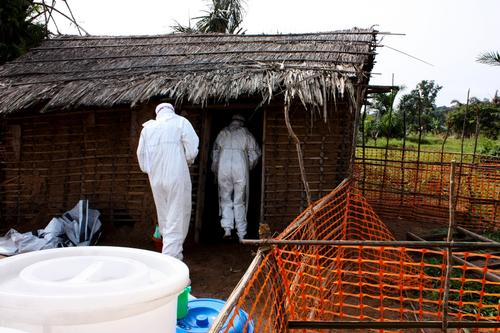Brussels/Geneva, 22 March 2014 – An outbreak of Ebola haemorrhagic fever in southern Guinea has prompted the international medical organisation Médecins Sans Frontières (MSF) to launch an emergency response. Twenty-four MSF doctors, nurses, logisticians and hygiene and sanitation experts are already in the country, while additional staff will strengthen the team in the coming days.
MSF has set up an isolation unit for suspected cases in Guéckédou, in collaboration with the Ministry of Health, and is currently doing the same in the town of Macenta, also in the Nzérékoré region in the south of the country. "Isolation units are essential to prevent the spread of the disease, which is highly contagious," says Dr Esther Sterk, MSF tropical medicine advisor. "Specialised staff are providing care to patients showing signs of infection."
With the help of the local community, MSF’s emergency team is also focusing on actively searching for people who may have been infected through contact with already identified Ebola patients.
33 tons of supplies sent
MSF is currently sending some 33 tons of supplies to Guinea on two charter planes leaving from Belgium and France, containing medicines, medical equipment and the supplies necessary for isolating patients, putting sanitation measures in place and protecting its teams.
So far, 49 suspected cases have been registered by the Ministry of Health. Six cases have been confirmed and 29 people have died. Ebola haemorrhagic fever is a rare but serious disease that spreads rapidly through direct contact with infected people or animals. It can be transmitted by blood and body fluids and is often fatal.
MSF has been working in Guinea since 2001, running projects to treat HIV/AIDS in Conakry and malaria in Guéckédou, as well as responding to emergencies, which in recent years have included cholera and meningitis epidemics.



